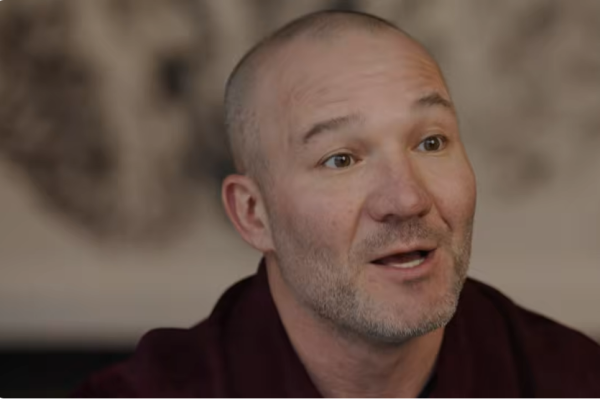The danger of the idea of inner sense of self: The god within who can change reality

One of my older patients said this morning, “I think I have an Identity crisis,” which is an expression I haven't heard in years. It’s not that people today don't have crises in their lives or struggle with issues of identity; it was the wording that caught my attention.
The term first appeared in the 1990s by famed psychiatrist Erik Erikson, who won the Pulitzer Prize and a National Book Award. He is best known for his work on personal identity. When his book Identity Youth and Crisis was published, I worked as the clinical ,anager of an inpatient psychiatric hospital. “Identity Crises” became the catchphrase for any personal problem or psychological affliction.
Identity Crisis implied the need for introspection and generated the proliferation of self-help workshops, group therapy, and self-help books. The common thread was looking inward. It didn't mean that the outside world wasn’t a problem, but society wasn't the focus of personal transformation. The problem was “me” and my need for answers, not culture. Validation from society was almost condescending. “I don't need your approval” was a common sentiment. Or, “You do your thing, and I'll do mine.” People had problems in their marriages, on the job, or in society, but the “Identity Crisis” was a personal issue, not a social one. In therapy, one wasn’t as interested in changing the world as much as changing oneself.
Somewhere along the way, the identity crisis of the 90s shifted. Issues of Identity became a cultural problem, and society was to blame for the crisis. I hear it frequently in my therapy sessions: It's the Republicans, Democrats, Antifa, schools, employers, the Left, Right, religion, COVID politics, and Russia. The journey of personal identity shifted from introspection to external threats. The world became the bully of self-expression and punisher of one's “personal sense of self,” the nirvana of True Identity. As a result, I have honestly observed more anger and hostility in the last five years than in my entire professional career.
Perhaps the 80s’ and 90s’ solutions to the identity crisis came up empty. Maybe the therapeutic tools and practices didn't deliver. Perhaps it didn't solve the internal fears and conflicts of the human condition.
But that would require some level of admission of failure, both from the therapeutic industry and the individual. Where would one turn for self-help if both the professionals and the individual failed to answer the identity crisis? However, instead of abandoning self-sufficiency and personal autonomy, there was a new spin. The therapeutic process and self-help journey were not a story of failure but profound evolution and success. Progressive. Revolutionary. Woke.
The outdated “Identity Crisis” was replaced with one's “Inner Sense of Self” (ISS); the god within who can change reality, most prolific in transgender ideology, but ubiquitous as the social construct for defining the “true self.” ISS is not what society and the world assign the individual but what the individual senses about the true nature of the Self. ISS must change the world, not the other way around. Society is the crisis, not the person.
The battleground for the ISS is oppressive social structures, archaic morals, misgendering language, outdated family categories, and obsolete sexual mores. ISS demands a new narrative: new language, moral deconstruction, new family structures, and laws to enforce ISS nonconformists.
The Bible acknowledges the battle and is the central message of Jesus Christ, who said, “I did not come to bring peace but a sword” (Matthew 10:34-38). It’s a metaphor for the struggle to find one’s identity in Christ rather than approval from others:
“Do not suppose that I have come to bring peace to the earth. I did not come to bring peace but a sword. For I have come to turn a man against his father, a daughter against her mother, a daughter-in-law against her mother-in-law — a man's enemies will be the members of his own household.
Anyone who loves their father or mother more than me is not worthy of me; anyone who loves their son or daughter more than me is not worthy of me. Whoever does not take up their cross and follow me is not worthy of me. Whoever finds their life will lose it, and whoever loses their life for my sake will find it.”
According to Christ, the search for significance (finding one’s life) is an internal quest that may conflict with society and your family. Why? Because one’s identity is in God, not humanity. You can deconstruct, reconstruct and shape families and society indefinitely; it will never have the power of eternal life, the forgiveness of sins, or a cure for suffering and death. In Christ’s words, if you want to trust social structures and humanity, you will “lose your life,” not find it.
For Christians, the battle is about the person, not society. The problem is not you; it is me — my sin, my separation from God. The struggle is in the soul, not social justice theories or systemic changes that promise utopia. The identity crisis is losing God, not our place in society.
Dr. David Zuccolotto is a former pastor and clinical psychologist. For 35 years he has worked for hospitals, addiction treatment centers, outpatient clinics and private practice. He is the author of The Love of God: A 70 Day Journey of Forgiveness.





















